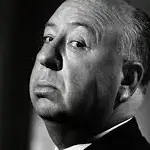"Se7en" is a crime thriller film directed by David Fincher and released in 1995. It stars Brad Pitt as Detective David Mills, and Morgan Freeman as Detective William Somerset, two homicide detectives who team up to track down a serial killer who is targeting people based on the seven deadly sins.

The film's use of religious imagery and symbolism is noteworthy. The seven deadly sins are rooted in Christian theology, and the film uses them to explore the idea of divine retribution and punishment. The Catholic Church identifies "seven deadly sins" as the ultimate causes of eternal damnation for individuals, namely gluttony, greed, sloth, wrath, pride, lust, and envy.
However, these sins are not explicitly referenced in the Bible. Instead, they were first introduced by Thomas Aquinas, a medieval scholar, in the 13th century. But in modern commercial society, these sins have become more acceptable. Adam Smith, for example, in "The Wealth of Nations," advocates for the benefits of "greed" (though not explicitly). The human liberation movement encourages individuals to embrace their true selves and desires. Modern ideology has made human desires legitimate.

Whether Aquinas' interpretation of the Bible and Christianity's endorsement of these sins go against God's intentions is not the focus here. However, in the world depicted in this film, materialism, and crime are rampant. People will go as far as breaking the law and harming others in order to satisfy their base desires. In the movie, John Doe portrays himself as the "chosen one" who wants to alert the world through his criminal "masterpiece". However, he is not exceptional and is also driven by his own desires. His "masterpiece" harms others and fulfills his desire to become the preacher for God. He’s just a mortal who’s obsessed with becoming the “Chosen One”. The film's brilliance lies here. All characters are consumed by various obsessions, none can break free from them.

John Doe believes that he is performing an act of purification by punishing those who have committed sins related to the seven deadly sins. John's belief in his mission is tied to his view that the world is filled with deadly sins, which are tolerated and overlooked by society. He sees himself as setting an example by punishing those who commit these sins, even if it means resorting to extreme violence. He believes that his actions will be studied and followed for generations to come.
He has a vast knowledge of classical religious philosophers such as Aquinas, Milton, and Dante, and is familiar with concepts such as the seven layers of hell, the Trinity, and moral codes. To him, this knowledge acts as a gilded crown, shrouding his crimes in a mysterious and solemn veil, while also providing strong theoretical support for his motives. Although John's theories may be enigmatic, he commits murders based on his belief in the doctrine of original sin in religious philosophy, just as Raskolnikov in "Crime and Punishment" murders based on his belief in Nietzsche's philosophy of Superman, both of which are blasphemous to faith.
People's values and moral beliefs are shaped by social customs and upbringing. A classical religious fanatic like John Doe poses a severe challenge to our existing value system and moral standards. His candid monologue questions whether God's destruction of Nineveh and Sodom and Gomorrah was for the purpose of punishment. In the chaotic age, aren't John's crimes the great achievements of a prophet? However, John is not a saint or a prophet; he is just a classical religious fanatic who happens to be intelligent and arrogant.
John believes he is the "chosen one." He claims that he has no choice but to fulfill God's mission. While his ideas on challenging secular moral standards and value systems are reasonable, once he puts them into action, he is a "mere mortal" who has gone mad because he has lost the fundamental quality that makes us human: empathy.
In his journal, we can discern his perspective toward the world:
"We are such sick, ridiculous puppets / on this gross little stage we dance on / how fun it is to dance and fuck / with no concern in the world / not realizing that we are nothing / we are not what was intended."
“On the subway today, a man came up to me to start a conversation. He made small talk, a lonely man talking about the weather and other things. I tried to be pleasant and accommodating, but my head hurt from his banality. I almost didn't notice it had happened, but I suddenly threw up all over him. He was not pleased, and I couldn't stop laughing.”
On one hand, he sees humanity as foolish, controlled by animal instincts, yet oblivious to their own enslavement. On the other hand, he views himself as superior, a prophet who has seen through all things. As the "prophet" who has discovered the "truth," he seeks to preach God's word and alert people with his "Seven Deadly Sins" masterpiece. This has become his top priority in life.
However, being an arrogant extremist, he lacks empathy for others and feels superior to them. This resulted in him struggling to form deep, long-term relationships with anyone. Despite being aware of his limitations as a human, he envies those who have loving relationships and happy families. In the end, he chooses to sacrifice himself and use his own "envy" as the final piece to complete his masterpiece. On the surface, this plan seemed flawless. Sacrificing himself, using his own guilt as evidence, becoming a martyr, and warning the world seemed so noble and selfless.
But the problem is that his perfect masterpiece is not perfect at all.

In his perspective, his actions are the noblest of missions, and sacrificing a dozen people would save and alert millions of others, which appears to be flawless and fair. However, everything altered when he carried out his vicious deeds on others, which is evil in the act itself. John wants to eliminate "evil" from the world. However, his nature is inherently evil, which of course is something he is least willing to admit. This can be seen from his conversation with Somerset.
William Somerset: "If you were chosen, that is, by a higher power. And if your hand was forced, it seems strange to me that you get such enjoyment out of it, you enjoyed torturing those people. That doesn't seem in keeping with martyrdom, does it?"
When asked about his enjoyment in torturing people, John initially dodges the question and turns to Mills to change the subject. However, he eventually responds by justifying his actions, claiming that the victims were not innocent and that he was taking their sins to logical conclusions.
John lacks not only sympathy for the sinners, but he also harbors contempt for them, and his desire to harm others is deeply unsettling. He takes pleasure in causing pain to others, which stands in stark contrast to his purportedly noble mission of enlightening the world with his perfect masterpiece. He avoids acknowledging his true nature, as admitting to his desires would expose his "evil" tendencies. He claims that his desire to harm the sinners is necessary to complete his masterpiece, but this is merely a way for him to justify his heartless behavior.
John cannot be considered a true prophet, as his lack of empathy for all living beings is antithetical to the role of a prophet. He enjoys his mission of punishment and feels no discomfort in harming others, which is the opposite of how a true prophet would act. He has no right to judge others' final judgment and cannot be considered a glorious martyr. He is simply a mortal who, due to his strict moral self-discipline, is more attuned to the depravity of everyday life. However, this does not give him the right to take others' lives.
If the victims had succumbed to the seven deadly sins of humanity, then John was self-destructive due to another form of desire, a desire to be more, a desire to be immortal. Unlike ordinary people who were driven by their base desires and led to the seven deadly sins, he committed graver crimes to play the role of a "preacher" and punisher. In order to satisfy his desire to become the "chosen one," he did not hesitate to use various cruel methods to kill multiple victims.
John's killing of Tracy, Mills' innocent wife (and her unborn child), was a reprehensible act committed solely to provoke Mills and complete his masterpiece. Tracy was just a victim of John's "envy" sin, not the "sinner" John claimed to punish.

The main intention behind the film" isn't to delve into religious themes but rather to examine the deteriorating state of humanity in the contemporary, prosperous, materialistic society, and the psychological turmoil that arises as a result of this decline. David Fincher uses the religious theme to challenge the modern civilization that is scarred and battered, leaving us as spectators feeling chilled and contemplating silently.
The perfection of the film is found in the flaws of John Doe's masterpiece.























































Share your thoughts!
Be the first to start the conversation.